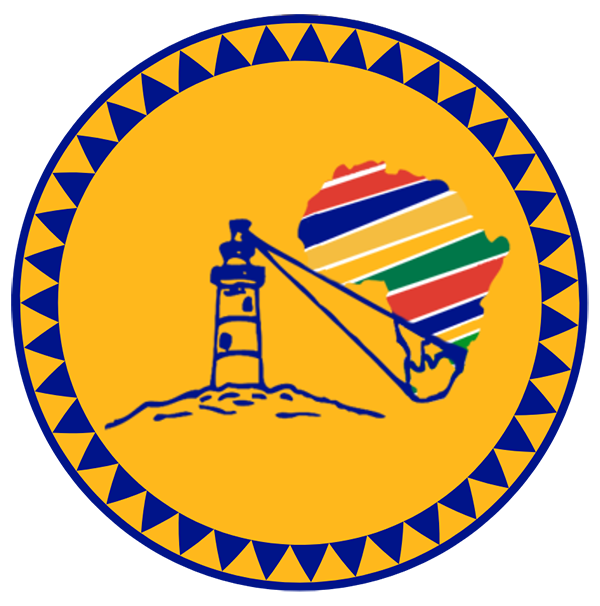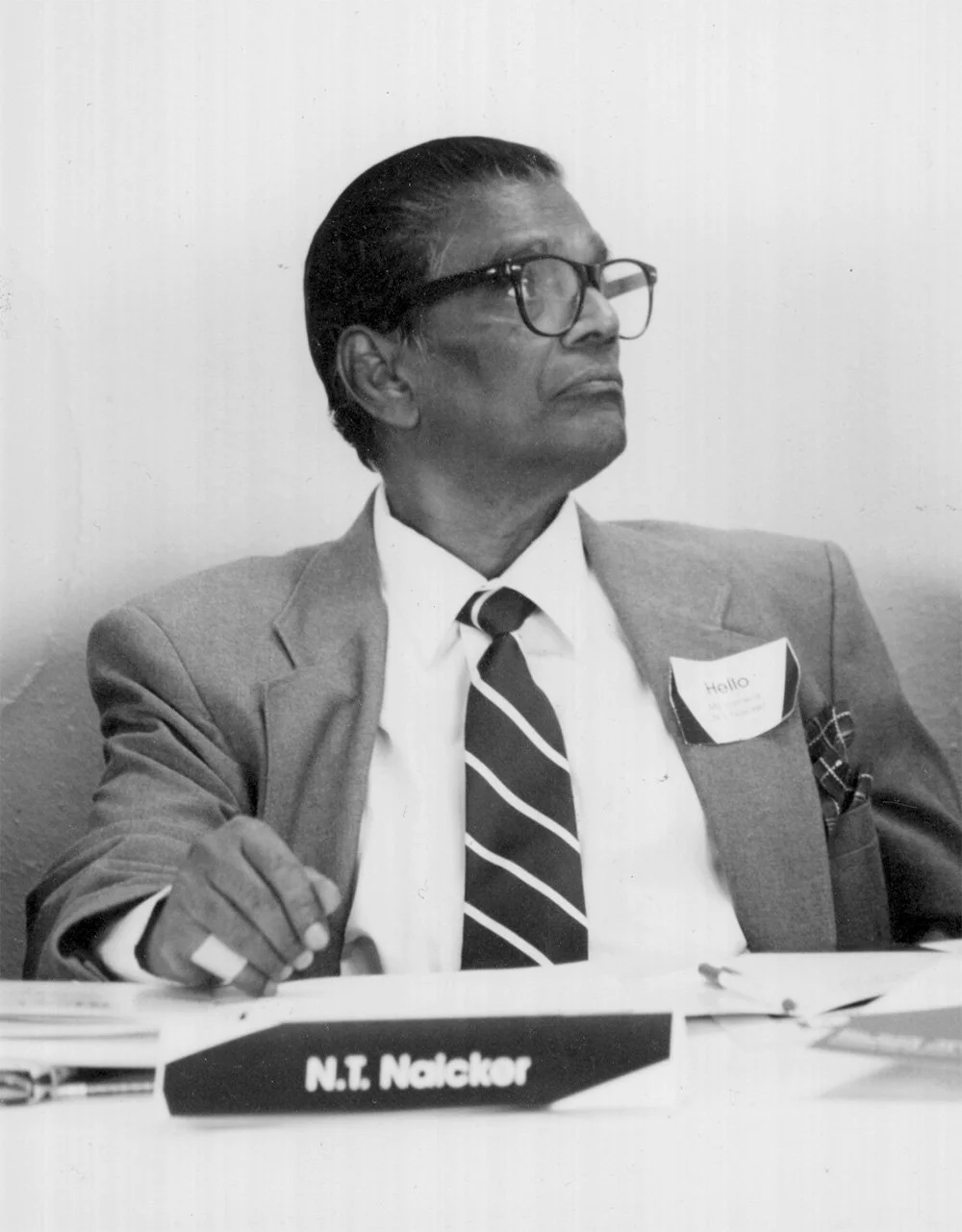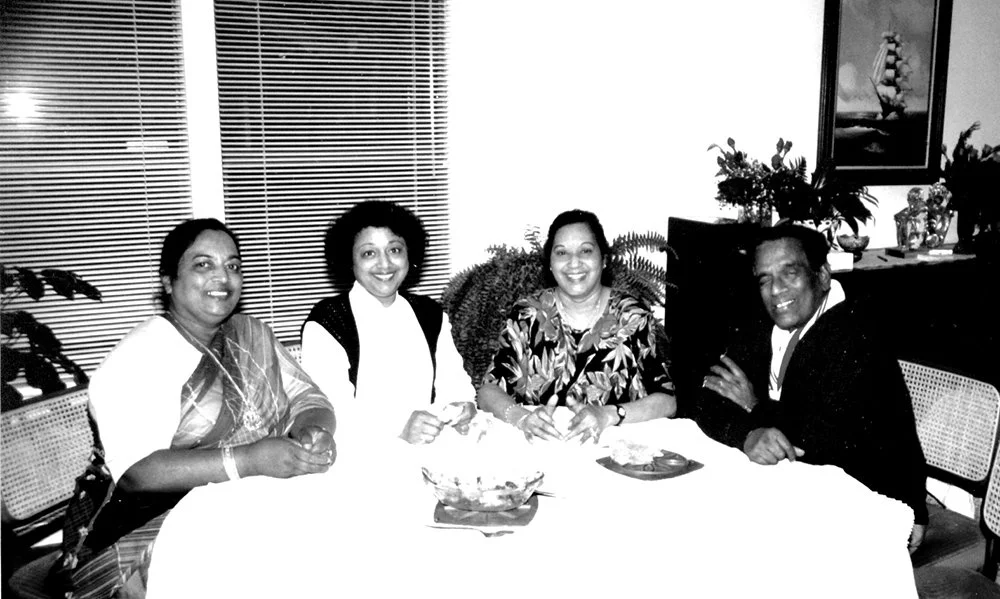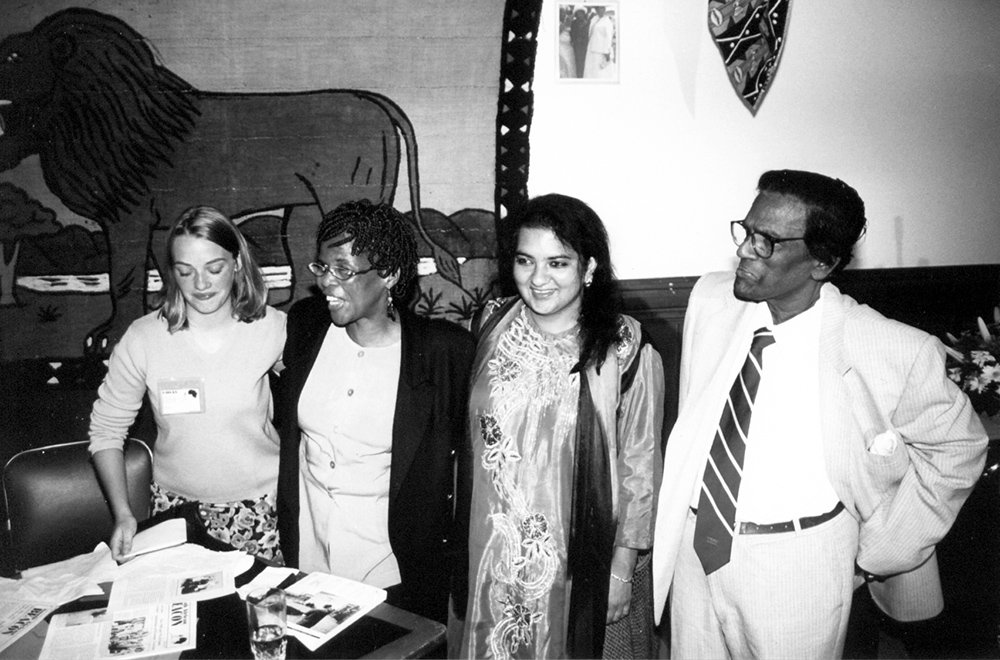N.T. Naicker
(1922 - 2003)
Narainsamy Thumbi Naicker, known to all as “N.T.,” was a signatory of the South African Freedom Charter of 1955 and advocated for its full implementation to qualitatively improve conditions of life and work of the South African people and gain the political power to determine their own future. He never gave up this mission, and his passionate accounts, with an encyclopedic knowledge and loquacious voice.
N.T. was born to Narrian and Amakanno Naiken in Pinetown, South Africa, not far from the port city of Durban, in 1922. Three of his grandparents had immigrated to South Africa from India in the 1880s, part of the second wave of Indian immigration by merchants, businesspeople and farmers.
As a young man, N.T. Naicker then taught primary school at the Friends of the Sick Association (FOSA) settlement, a tuberculosis sanitarium near Durban for the victims of TB and their family members. It was here that he first contracted the tuberculosis that many years later took one of his lungs. After one year he took another teaching job at the Pinetown Indian School. N.T. returned to school and completed a Bachelors of Arts degree at the University of Natal. During his studies and life experience, N.T. mastered five languages: English, Tamil, Telugu, Zulu and Afrikaans.
Naicker taught until 1948, and that year witnessed the white supremacist and pro-fascist national forces, led by the Afrikaners National Party, assume power and officially install the apartheid system. Naicker decided to study law and articled (apprenticed in law) first under Mr. Whichura, a prominent white attorney in Durban, in 1949. In 1954, he was admitted as an attorney by the South African Court after successfully passing the extraordinarily difficult South African bar exam.
N.T. had found that the law was not available to the native and Indian South African populations, and had joined the Natal Indian Congress (NIC). Through the NIC, Mr. Naicker became formally associated with the African National Congress (ANC) and participated throughout 1954 and 1955 – cooperatively and in secret – in the joint struggle for freedom on behalf of those racial and ethnic groups who lacked economic or political power in apartheid South Africa.
Mr. Naicker worked with and assisted in the legal defense of Nelson Mandela at his Pietermaritzburg trial as well as the 1957 Treason Trial. He worked in coordination with Oliver Tambo and many other leaders of the ANC.
Mr. Naicker joined the NIC in 1949 and quickly rose in its ranks. A first-rate political organizer, he was elected Secretary in 1954 and held this position for nine years. As keynote speaker at the first NIC conference over which he presided, he invited African National Congress (ANC) Cape Area chairman Govan Mbeki to attend. This began a long series of clandestine events during which the ANC and the Natal Indian Congress leadership developed strong friendships, and organized many joint events. Of course, the apartheid government had forbidden such collaboration as subversive and treasonous, and international press reports suggested that the two organizations were very much at odds. The truth was, however, that Africans and Indians worked together regularly in the struggle against apartheid. N.T. Naicker, himself a fluent speaker of 5 different languages, was one of the architects of this collaboration.
By 1955, the two organizations, working with representatives of other political resistance groups, had created the famous Freedom Charter, a list of ten basic principles upon which the new South African Constitution was later developed. The Charter proposed that: (1) The People Shall Govern! (2) All National Groups Shall Have Equal Rights! (3) The People Shall Share in the Country’s Wealth! (4) The Land Shall Be Shared Among Those Who Work it! (5) All Shall Be Equal Before the Law! (6) All Shall Enjoy Equal Human Rights! (7) There Shall Be Work and Security! (8) The Doors of Learning and of Culture Shall Be Opened! (9) There Shall Be Houses, Security and Comfort! and (10) There Shall Be Peace and Friendship! N.T. once explained that “The Freedom Charter was a simple manifesto of principles by which political organization was to exist.”
That year, a joint conference was held at which the Charter was introduced for discussion. Mr. Naicker was designated to speak on the first principle — The People Shall Govern! The South African police swept into the meeting hall during Mr. Naicker’s address, and rushed the stage. They declared that the Freedom Charter was a subversive document, based upon the speech they had just heard. They began an immediate search for any copies of the document to prevent its further dissemination. However, organizers were able to smuggle out several copies for safekeeping, even as the Special Branch officers bullied and threatened the delegates and speakers. Mr. Naicker and the other speakers and conference organizers were arrested and imprisoned. To raise bail, ANC and NIC members double and triple-mortgaged their homes.
Although ordered not to contact one another and under constant surveillance, the Freedom Charter defendants still managed to organize. They held musical events in public places, attended by hundreds, and sometimes thousands of people, in order to lose their police “attendants” in the crowds. They slipped away to hold a three-day strategy meeting in the rural areas, at which for the first time Indians and Africans were able to share living quarters and meals, in resistance to the Group Areas Act, which banned such fraternization.
In 1962, Mr. Naicker and his codefendants were acquitted of treason charges in the Freedom Charter trial. He went on to defend other well-known ANC members, including Nelson Mandela, of similar “offenses.” Although the NIC was founded by Mohandas K. Gandhi as a pacifist organization, dedicated to non-violent resistance, N.T. was in frequent contact with Oliver Tambo, head of the uMkhonto weSizwe (Spear of the Nation) armed resistance movement, and was briefed to defend the first group of fighters captured after training outside of South Africa. The government banned N.T. as a result of this (meaning that he was not permitted to speak to more than one person at a time outside his family and could not be quoted). N.T. was forced to resign from the defense team.
In 1963, while Premawathie “Prem” Naicker, N.T.’s wife, was pregnant with their second child, Vanitha, N.T. was again arrested. At trial, he was banned again, and sentenced to ten years of house arrest. He was forced to resign his official position as the head of the NIC and South African Indian Congress (SAIC).
Shortly after the period of house arrest ended, N.T. was again arrested, and spent four years in prison. Of course, he and Prem had continued to organize against apartheid in violation of the banning orders. By now, the white supremacist Nationalists were desperate to prevent the end of the apartheid oppression, and terrified of the potential for violence they saw in the resistance movement. Knowing that they had been responsible for the deaths of thousands and the terrorism of millions of innocent people, they feared that indigenous Africans, Indians, and others they had identified as non-white would return the favor. The constant bannings, arrests and imprisonments of Mr. Naicker and others show the lengths to which these terrorists were willing to go to sustain their vile oppression.
After his release, N.T. was again banned, and his movements were restricted. His comrades in the movement, such as Nelson Mandela, Joe Slovo, and Ruth First, were either in prison or had been assassinated. Younger men and women held the official positions of leadership, and years of struggle had seasoned them. N.T. decided that the time had come to leave South Africa. Working with others in the Movement, he slipped away under cover of darkness and walked more than 30 miles to Botswana. Even his children could not be told where he was, for fear they would tip off the police who kept the house under constant observation. Mr. Naicker was arrested in Botswana as an escapee, and returned to South Africa.
Several years later, the entire family was exiled to the United States. They arrived in 1985. Soon after the family arrived in Sacramento, they met local South Africans interested in continuing the struggle to end apartheid. In 1989, N.T. participated in the historic African National Congress youth conference held in Lansing, Michigan. Soon after, N.T. and the organizers he met founded the new Committee for South African Solidarity (COSAS), dedicated to supporting the new political system that was about to emerge in South Africa, and to furthering the economic and social change so desperately needed by the majority of the population, including the continuing struggle to implement the Freedom Charter.
N.T. readily shared his vast experience as a lawyer in the movement for change at national law conferences in the U.S., remarking at one conference on the parallels in the struggle for justice for the workers of the United States and South Africa.
N.T. also functioned as a Board of Directors’ member of COSAS and was a key correspondent to the COSAS newsletter, South African BEACON. He was a great teacher of organizing to hundreds of supporters and followers.




